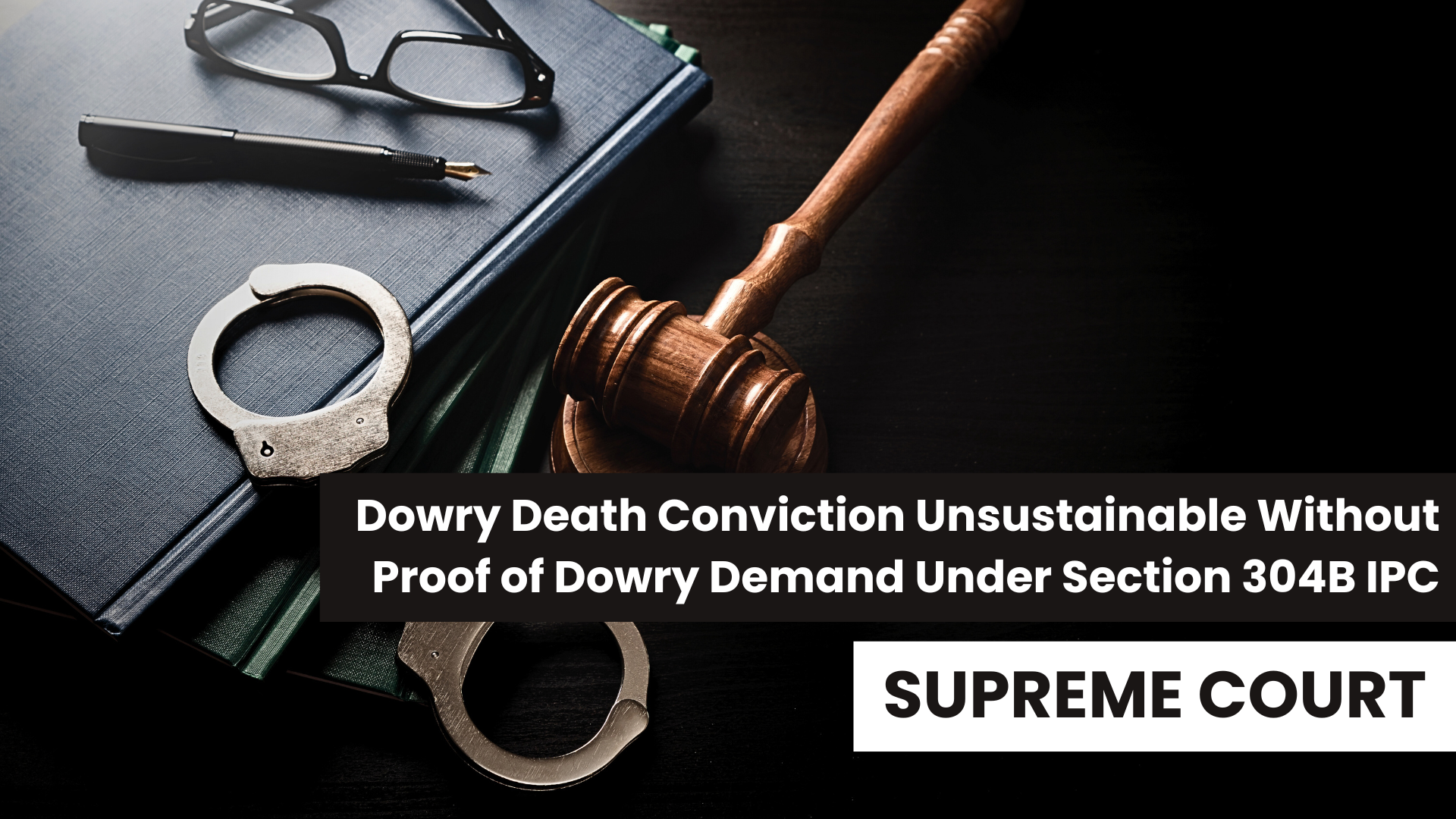
In a landmark ruling, the Supreme Court of India overturned the conviction for dowry death under Section 304B of the Indian Penal Code, emphasizing the need for clear evidence of dowry-related cruelty or harassment before a conviction can be sustained. The two-judge bench comprising of Justice Sudhanshu Dhulia and Justice JB Pardiwala set aside the conviction for dowry death under Section 304-B of the Indian Penal Code (IPC), ruling that there was inadequate evidence to prove that the deceased wife had been subjected to cruelty or harassment by her husband about dowry demands before her death.
The husband, sister-in-law, and mother-in-law, who had been sentenced to life imprisonment by the trial court—a decision later upheld by the High Court—had their convictions under Section 304-B quashed by the Supreme Court.
Referring to Rajinder Singh vs. State of Punjab 2015 AIR SC 1359, The Court emphasized that for a conviction under Section 304-B, four key elements must be proven: (a) the woman’s death must have been caused by burns, bodily injury, or under unnatural circumstances; (b) the death must occur within seven years of marriage; (c) the deceased must have faced cruelty or harassment from her husband or his relatives shortly before her death, and (d) such cruelty or harassment must be linked to dowry demands.
Upon reviewing the material placed on record, specially the witness testimonies, the Court found no conclusive evidence that the cruelty or harassment faced by the deceased wife was related to demands of dowry. Instead, general statements were made by witnesses, which the Court deemed insufficient to sustain a conviction. As a result, the Court ruled that the trial and High Courts erred in applying the presumption of dowry death under Section 113B of the Indian Evidence Act.
The Court while relying on Charan Singh alias Charanjit Singh vs. State of Uttarakhand 2023 INSC 404, clarified that an unnatural death within seven years of marriage does not automatically result in a conviction under Sections 304B or 498A unless there is clear evidence linking the cruelty to dowry demands. In this case, witness testimonies suggested other reasons for harassment, such as the deceased objecting to her husband's extramarital affair. As the demand for dowry was not established, the presumption of dowry death was considered erroneous.
The Court upheld the husband's conviction for abetment of suicide under Section 306 of the IPC and cruelty under Section 498A, as the evidence supported these charges. However, the conviction under Section 304B for dowry death was set aside, as the prosecution failed to prove the case for dowry-related cruelty. Regarding the offenses under Sections 306 and 498A, the Court sentenced the husband (appellant No. 2) to three years of rigorous imprisonment and imposed a fine of Rs. 25,000 for each offense.
CHABI KARMAKAR & ORS. Vs. THE STATE OF WEST BENGAL.

